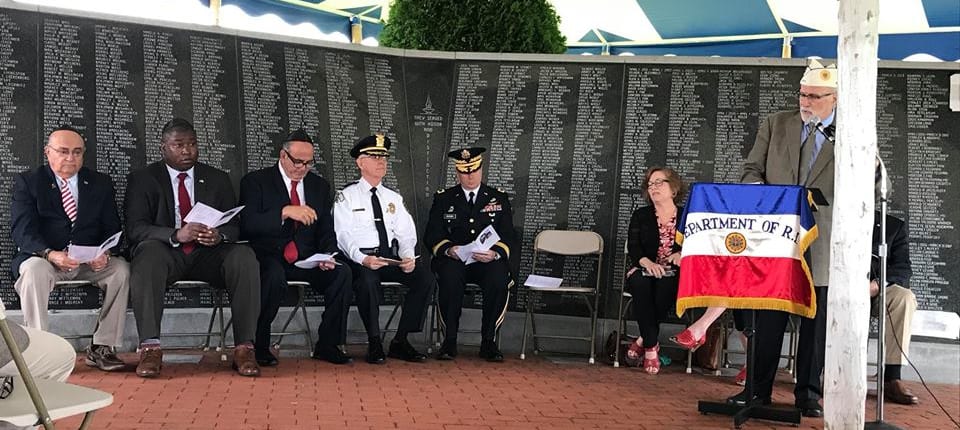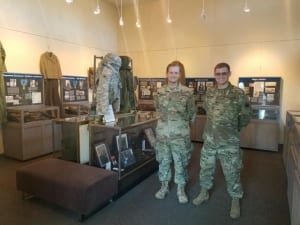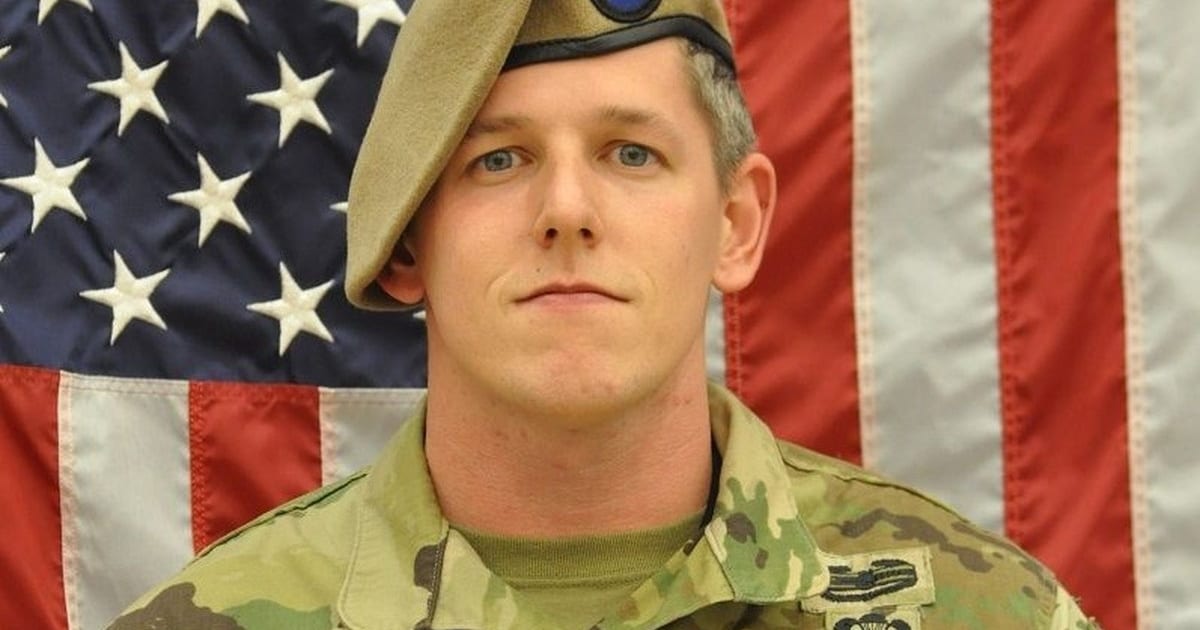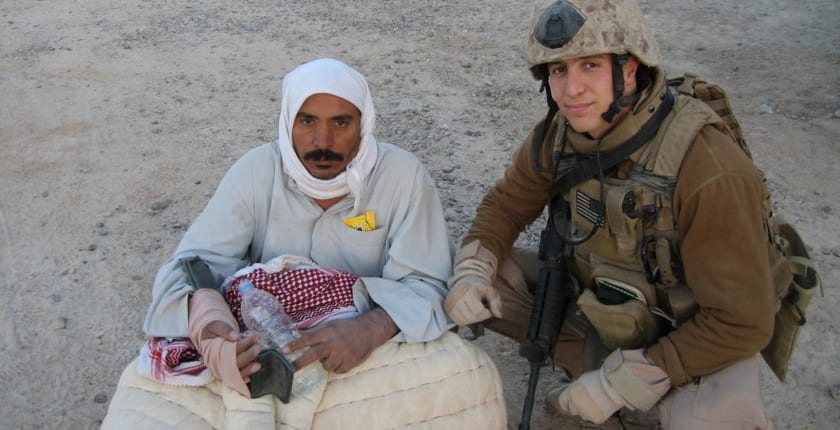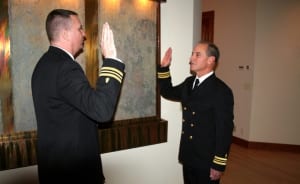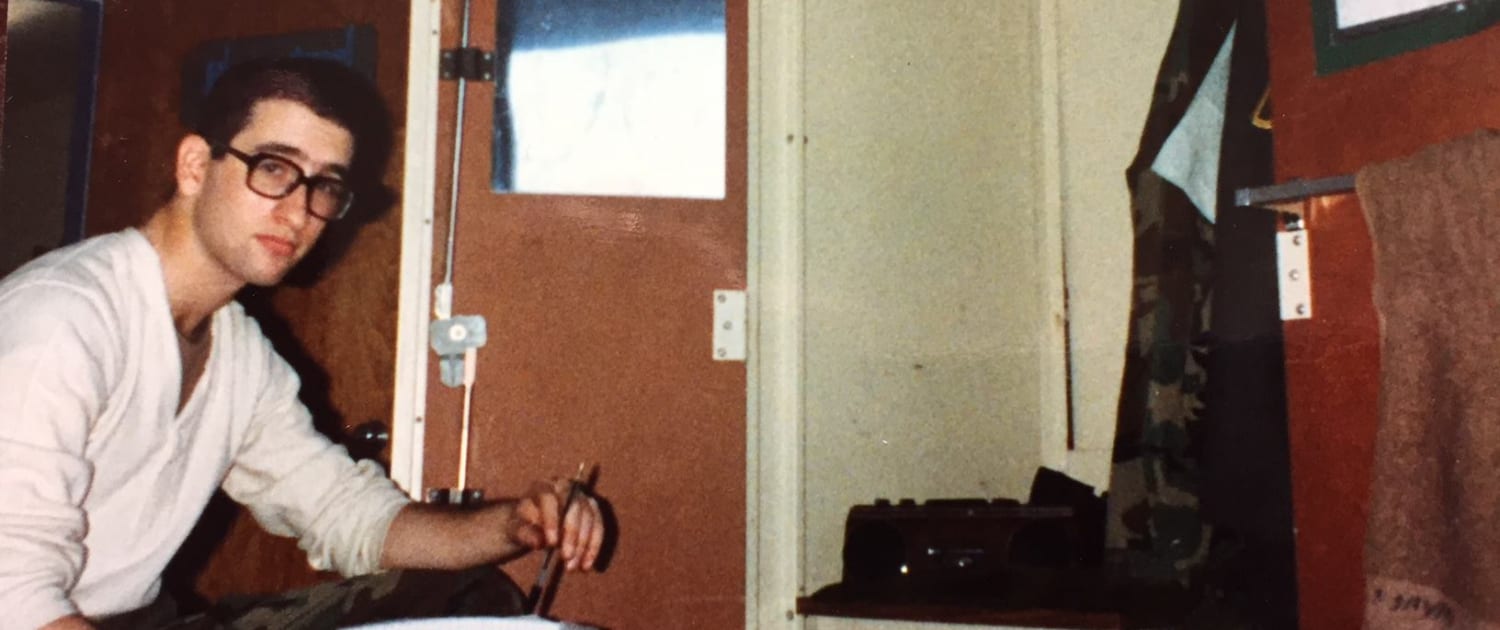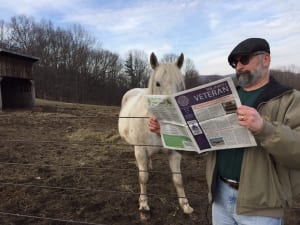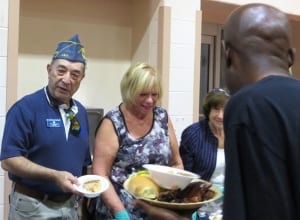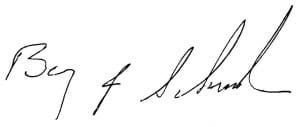
Post 749 sponsoring packages for troops temporarily stationed at Fort Bliss during Hanukkah.
By Sabrina Fine, Communications Intern
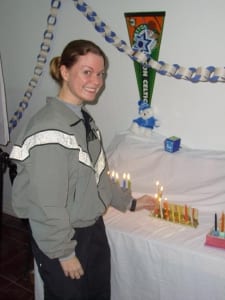
SGT April Honig celebrating Hanukkah in Mosul in 2006.
During the monotony of deployment, one thing that troops look forward to is mail. It is a small gesture from someone in a place of homeland comfort that can go a long way both physically and mentally. Receiving a package from a loved one or organization can change a service member’s mood and ultimately raise their morale.
“The taste and smells of home — as well as personal messages of support demonstrates care, honor and respect for our fellow Americans. Connecting in this way to our troops can help meet both their physical and spiritual needs,” wrote Sara Fuerst & Ava Hamburger on KosherTroops.com
There are many organizations that send packages to Jewish troops such as Aleph, Major Stuart Adam Wolfer Institute (MSAWI), Kosher troops and JWV to name a few.
MSAWI was established so that the legacy of Major Stuart Adam Wolfer’s leadership, commitment to country and community service will live on. Stuart Wolfer was killed in 2008 while serving in Iraq.
“MSAWI was created so that those of us here at home may give of our most precious resource, our time,” said Beverly Wolfer-Nerenberg, MSAWI president and Stuart’s sister. “We always try to involve schools, community groups and faith-based organizations to be an active part of making the care packages. Our troops deserve to know that we care about them and are supporting them.”
Supporting service members morale is a way for people in America to make a positive difference. A servicemember’s morale affects mental, moral, physical condition and ability to overcome obstacles. Poor morale can even lead to loss of victory.
JWV member Gavin Ellman recalled receiving care packages during his service: “They had a huge impact on how we felt,” said Ellman. “Especially the ones that showed people really were thinking about us. The handwritten notes and pictures were so touching!”
It is special to receive care packages during holidays when the weight of being away from family feels heavier. Organizations often send special packages for holiday festivities.
“I served in the Air Force for 32 years,” said Retired Colonel Nelson L Mellitz. “Having been deployed many times during Jewish and Christian holidays, I know that receiving a Jewish holiday card creates a connection to home and the Jewish community. Sometimes being one of the few Jewish military members in a unit overseas and receiving a card or care package from Jewish people or a Jewish organization gave reason to being there.”
It is not uncommon for organizations such as MSAWI to receive letters of thanks. Beverly Wolfer recalled a touching thank you letter that said “Being deployed presents so many challenges: safety concerns, 7-days a week demanding work, and loneliness during Jewish holiday times due to separation from family. I’m so pleased to say the Major Stuart A. Wolfer organization contributed immensely in boosting my spirits by providing care package items during my Afghanistan tour. I wish you could see the look of gratitude upon the soldiers faces when I distributed the wonderful care package items. The nuts and socks you sent were especially welcomed! Not only do the provisions add comfort to austere surroundings, but knowing the folks back home appreciate soldiers’ sacrifices gives us strength and courage to preserve through Operation Enduring Freedom. Thank you for your patriotism and commitment to the troops!”
Sending care packages to those of the Jewish faith is not new. During World War II the three sons of the owners of Katz Deli in Manhattan, New York were serving in the armed forces, according the Katz website. The owners were in the habit of sending food to their boys and encouraged other parents to do the same.
The campaign during World War II of sending food to Jews in service became known as “Send a Salami to your Boy in the Army.” The catch phrase was first heard by Rose Tarowsky, mother of Izzy Tarowsky, who served in the South Pacific as a bomber pilot. Today, Katz Deli supports troops stationed in Iraq and Afghanistan with special shipping for U.S. military and care packages.
To support the effort of sending care packages, visit the websites of Aleph, KosherTroops, MSAWI, JWV SOS program, or Operation Macabee.
Volume 72. Number 4. Winter 2018
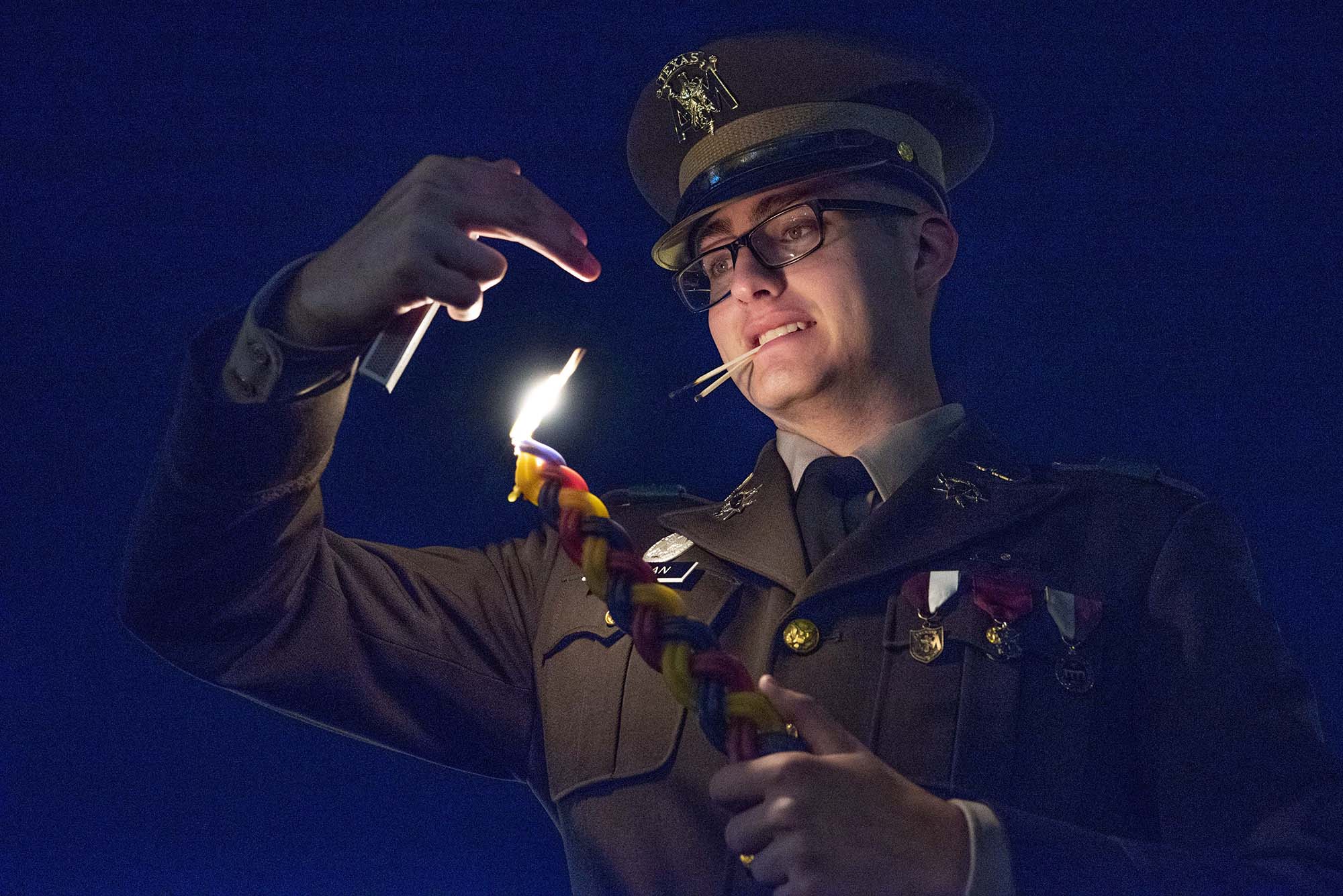
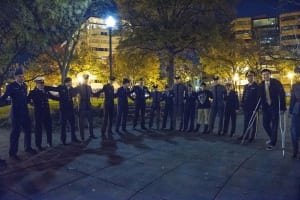

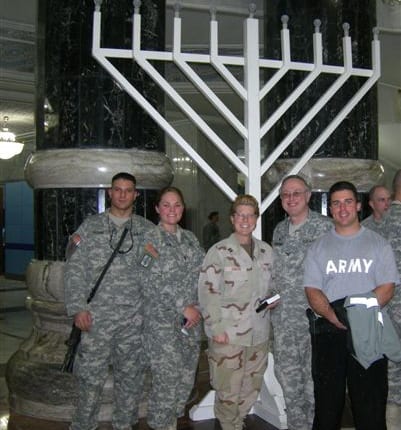

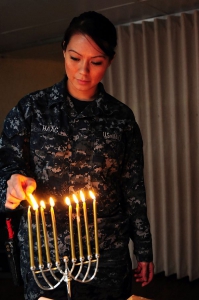
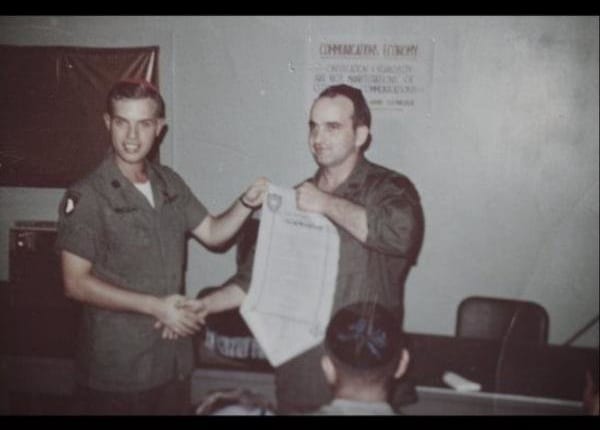
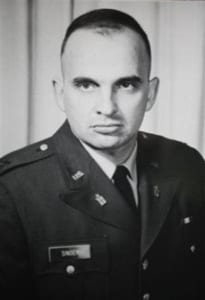 basic training at Fort Benning. From there, he went to Fort Sill shortly before deploying the Vietnam in November of 1968.
basic training at Fort Benning. From there, he went to Fort Sill shortly before deploying the Vietnam in November of 1968.